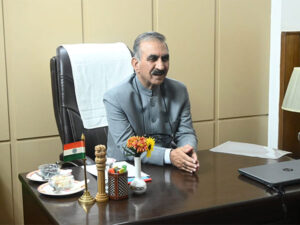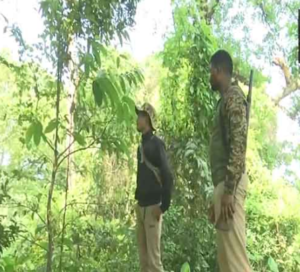Karnataka CM Siddaramaiah vows to implement social census report soon
Mysore (Karnataka) [India], September 29 (ANI): The Karnataka government is set to take significant steps towards implementing the much-anticipated social census report, aimed at identifying and addressing the needs of those deprived of basic amenities.
Chief Minister Siddaramaiah, speaking at an event organized by the Alumni Association of Hostels for Backward Classes in Mysore, confirmed that the report will soon be presented to the state Cabinet for further action.
“Our government conducted the social census to recognize and uplift the marginalized sections of society. The report has been received, but due to various reasons, its implementation has been delayed. However, we are committed to moving forward by placing it before the Cabinet soon,” the Chief Minister said.
He added that the caste census has long been a principle of the Congress party. “Since 1930, caste-based data has not been gathered as part of the national population census. Now, discussions on conducting caste censuses are gaining momentum across many states,” Siddaramaiah noted.
Siddaramaiah emphasized the vision of Dr. B.R. Ambedkar, who advocated for equal opportunities for backward classes, Dalits, and minorities. The inequality prevalent today, he explained, stems from the lack of such opportunities.
“Ambedkar worked tirelessly to ensure everyone receives equal rights under the Constitution. It is our responsibility to create awareness about the Constitution’s Preamble to foster social responsibility in the younger generation,” Siddaramaiah said.
Discussing the importance of education, Siddaramaiah remarked that true education must promote scientific thinking and foster responsible individuals. “As Kuvempu said, we must liberate ourselves from the chains of caste and superstition to become ‘Vishwa Manava’ Without a sense of scientific temper and social responsibility, education loses its purpose. Each of us must think about how we can contribute to society,” the CM stressed.
Siddaramaiah also called upon those who have benefited from government programs, particularly former students of hostels, to give back to society. “Many of you have achieved success in your fields. Now, it’s time to extend your support to those in need. Helping the weaker sections of society is the true way to repay the debt we owe to society,” he said.
He warned against the dangers of selfishness, stating that “those who think only of their families become self-centered, and this mentality has contributed to the rise in the number of old-age homes. We must all work together to bring about positive change in our society.”
Reflecting on past reforms, Siddaramaiah recounted the introduction of student hostels in 1977, a move that has played a crucial role in the education of backward-class students. “Today, these hostels accommodate 1,87,000 students. Such efforts have ensured that children from underprivileged backgrounds have access to education,” he said.
The CM also spoke of his struggles as a student, recalling how, due to the lack of a reservation system at the time, he missed out on opportunities for higher education and had to arrange for his own accommodation. “Recognizing the challenges students face, we introduced the Vidyasiri scheme to provide necessary support,” he added.
Siddaramaiah announced an increase in scholarships for pre-matric students, with the amount raised from Rs 750 to Rs 1,750 over the past five years. In the 2024-25 academic year, the scholarship will be further increased to Rs 1,850. He highlighted the importance of providing nutritious meals to students residing in hostels, stating that “only when students receive proper nutrition can they fully focus on their studies.”
Siddaramaiah outlined plans to establish a residential school in every hobli across the state as part of the government’s commitment to quality education. “Currently, there are 822 Morarji Desai Residential Schools, and 20 more will be built this year. By next year, every hobli in the state will have a residential school to ensure that children, even in rural areas, receive quality education,” he said.






